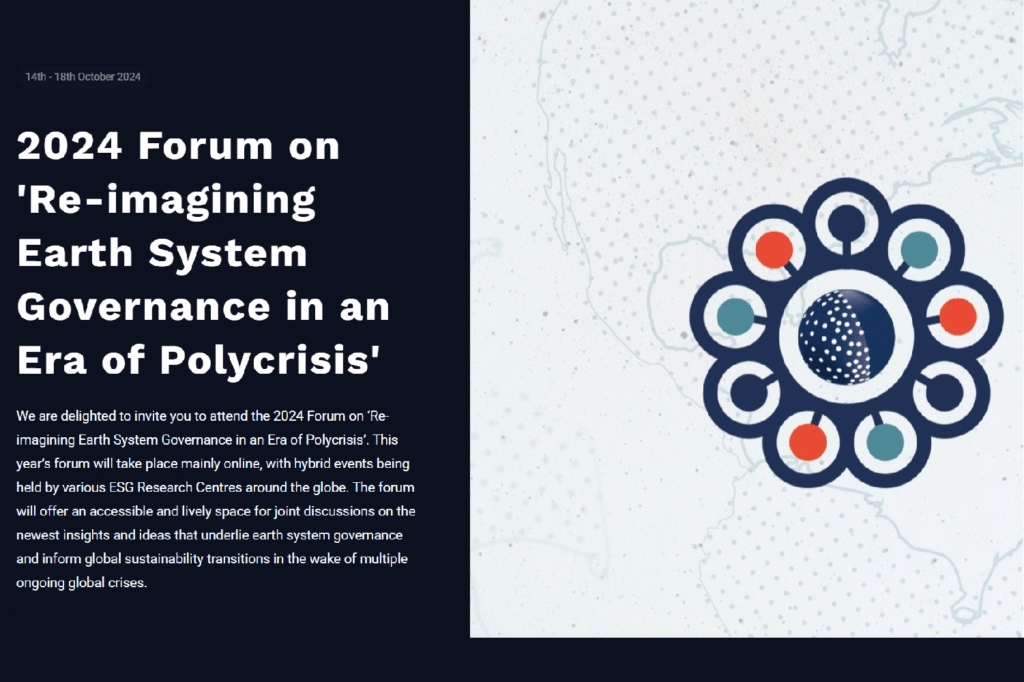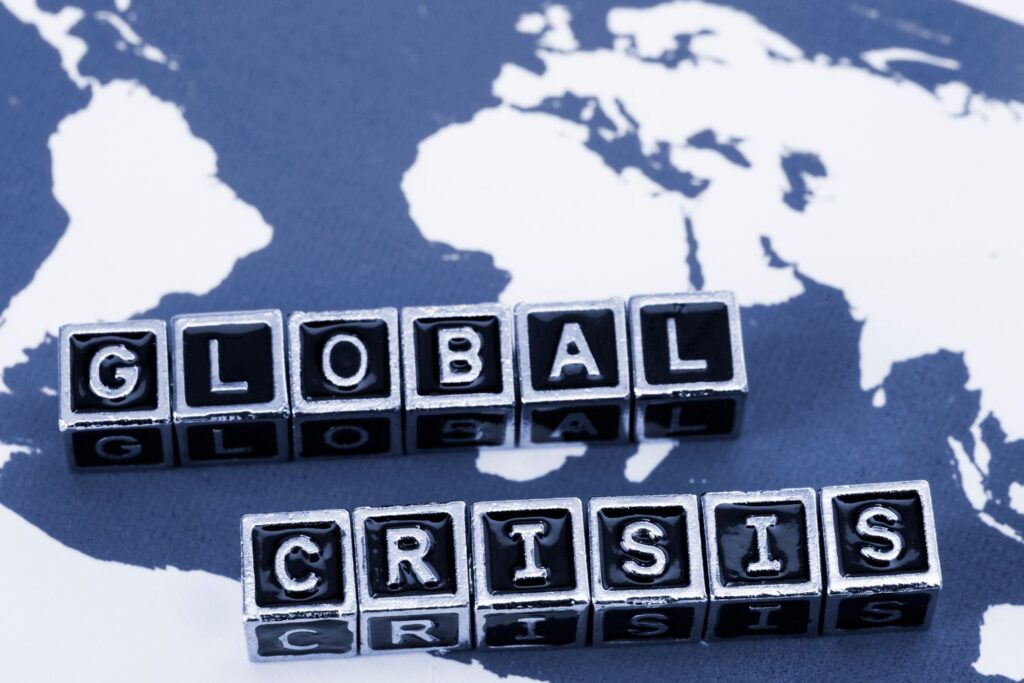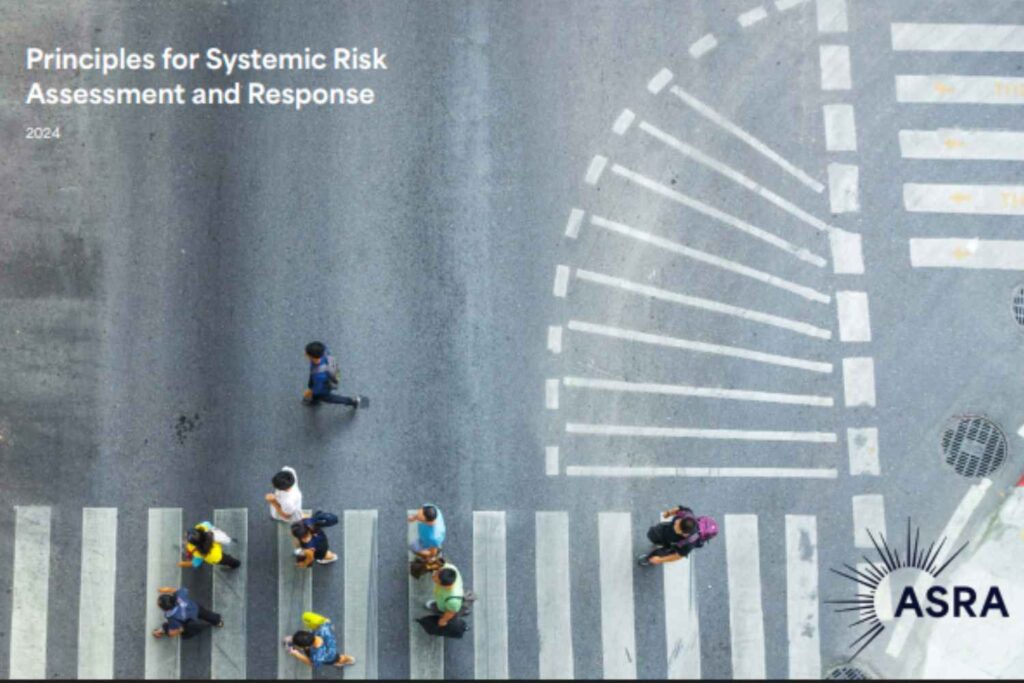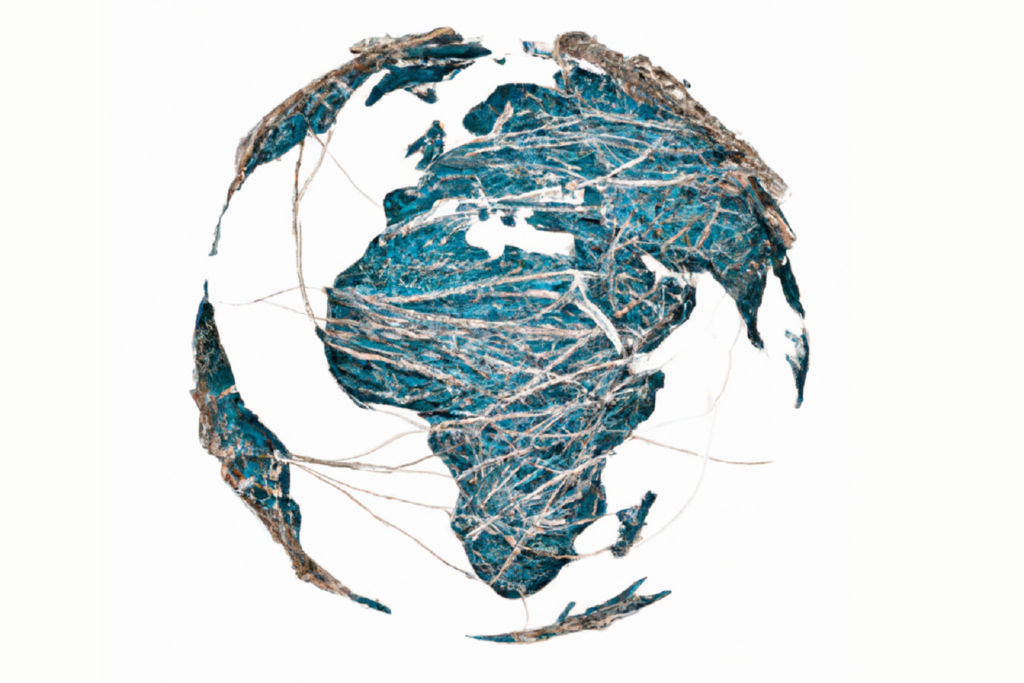Re-imagining Earth System Governance in an Era of Polycrisis
The 2024 Forum on ‘Re-Imagining Earth System Governance in an Era of Polycrisis’ convened academics, researchers, practicioners and government representatives exchanging critical insights on earth system governance in an era of polycrisis. Hosted by the Earth System Governance Project and co-hosted by Utrecht University, Canada Research Chairs, German Institute of Development and Sustainability (IDOS), the […]
Re-imagining Earth System Governance in an Era of Polycrisis Read More »










